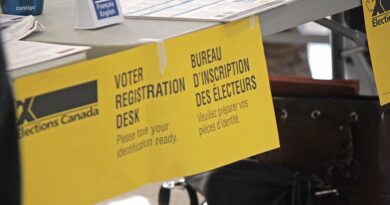Should We Outsource Public Services?
Things That Matter, By Dennis Rizzo
I shake my head when I hear someone say we should run government like a business. I’m not an economist, but I studied organizational behaviour, worked in government and business, and ran a non-profit.
We likely can agree management proficiency and operational strategies straddle the line between government and industry and are needed for an organization to function properly. Any management workshop or training course applies to both government and industry processes.
But there are clear distinctions in the purpose of government and business, and we should all be aware of these whenever someone touts the benefits of privatization. The ultimate goals and purpose of those operations have substantial differences. Yet, every generational cycle seems to raise the same cry to make government run like a business.
It’s A Fool’s Errand
Conflating business objectives with the goals of government gave impetus to the deregulation of banking and industry, handing off public programs to private corporations, and cutting taxes for the wealthiest – the trickle down theory. During the Reagan-Mulroney-Thatcher era the pledge to run government in a business format was a part of the plan. Wholesale pruning of departments overseeing banking and securities; liberating banking, security, and other industries from neutral oversight, led to the economic collapse of 1980s. This rush to eliminate government oversight was continued under Martin-Harper and Bush–Clinton-Bush. It resulted in the economic meltdown of 2008.
And it’s in the news again.
Neo-Liberals will tell you government does a lousy job of managing day-to-day operations. They are quick to showcase problems you encounter, but conveniently ignore successful services you do get. A manipulative neo-liberal government cuts funding purportedly to reduce waste, points to the resulting collapse of services, and proffers a privatization solution to resolve the loss of service it created.
I ask: How much waste takes place in what we call essential services compared to the proliferation of insider contracts, sweetheart deals, and outside consultant payoffs?
The privatization solution hands your tax dollars to private industry because industry knows exactly where to send those tax dollars saved by running a lean operation, to shareholders.
Money saved is not spent on increased service delivery, rather on cash to shareholders. Do you see a problem with this?
Essential services are just that, essential. They are paid for by taxed because they are necessary for the well-being and sustainable lifestyle of the public at large – that’s you and me.
EMT, fire and police, hospitals, schools – all of these are essential to the well-being of a society. Public assets, such as transportation, roads, parkland. and waterways are the legacies we leave for our children and grandchildren. Safety in our food, water, and environment are legacies we leave for generations to come. The reason business does not jump to manage these services for us under a business model is they do not generate shareholder dividends.
When you get hurt playing hockey, you have an EMT treat you and bring you to an ER staffed by nurses and physicians who have a professional goal of treating your injuries. Would you rather they be more concerned with saving a few pennies for the company shareholders, or with getting you well by whatever means?
When the court system places someone out of the way for a while (prison), they are managed by public employees. Should these caretakers have tools and training reduced to save a few dollars for shareholders, or should they get the best support that is available?
When you send your child to school, you expect that the teachers and staff are skilled, competent professionals. You also assume they are stable employees – not temporary or precarious workers hired on contract to save a few dollars. You expect there are standards they must meet. Should teachers get fewer resources to instruct children so shareholders can save a dime, or should your kids have the best equipment and professionals available?
What’s the point here? Of course, these are all things essential to a modern society. We can agree on that – I hope. The problem is when someone says, “Business can do it better”.
Manipulative governments continue to promote privatizing essential services and programs in a bid to save money. It doesn’t take a neurosurgeon to realize this is pure fantasy. The costs are usually not outweighed by revenues from paying customers – which, in this case, is you, the taxpayer. For that same amount of tax dollars, business has to cut services or staffing to create shareholder dividends.
Your essential service is now controlled by the shareholder-driven rule of maximizing profit. This axiom – hammered into MBAs in business school – states that an organization’s bottom line must continually improve; become larger each quarter. Corporations pay close attention to this process, offering smaller product at the same price, laying off employees, or modifying services and substituting materials.
There is a reason direct government funding can run certain activities better than business. If it were possible to provide solid, well-run essential services that sustain themselves, business would already have done it. These are tasks and activities where the rule of maximizing profit has no role.
The customers of essential services are a fixed entity – they exist whether you offer a product or not. Their demand levels do not change if you restrict access to the services or conditions they need. Their capacity to buy the product does not change if you lower the price.
But if you trim the resources for essential services you only end up hurting those who use and need them. The end result is poorer living conditions for the very people who contribute taxes to have a safe and secure community.
The fact is – don’t buy it when someone tells you, “Business can do it better.” For essential services, civic engagement, and overseeing public assets for the benefit of everyone, an honest, well-managed government is superior to business any day. Of course there are strategies and methods to improve public services. We’ll go into those in a subsequent piece.
(Images Supplied) Main: Toronto Stock Exchange, (Photo by nodomain.cc)

Dennis Rizzo joins SUNonline/Orillia as a columnist writing on big issues affecting ordinary Orillians. He is an ex-pat Yank from New Jersey. Orillia, Ontario. Canada is his adopted home, but he has brought along a degree of puckishness and hubris. Dennis spent more than 30 years working in the field of disabilities, with some side trips to marketing and management. He presented and keynoted for many conferences and served on a President’s advisory committee. Dennis is the author of several journal articles and booklets in the field of disabilities and work and five non-fiction books, including “A Brief History of Orillia – Ontario’s Sunshine City.” He recently republished a novel set in 1776 and a mystery set in 1860. He also enjoys sitting in on music sessions around town when he can.




